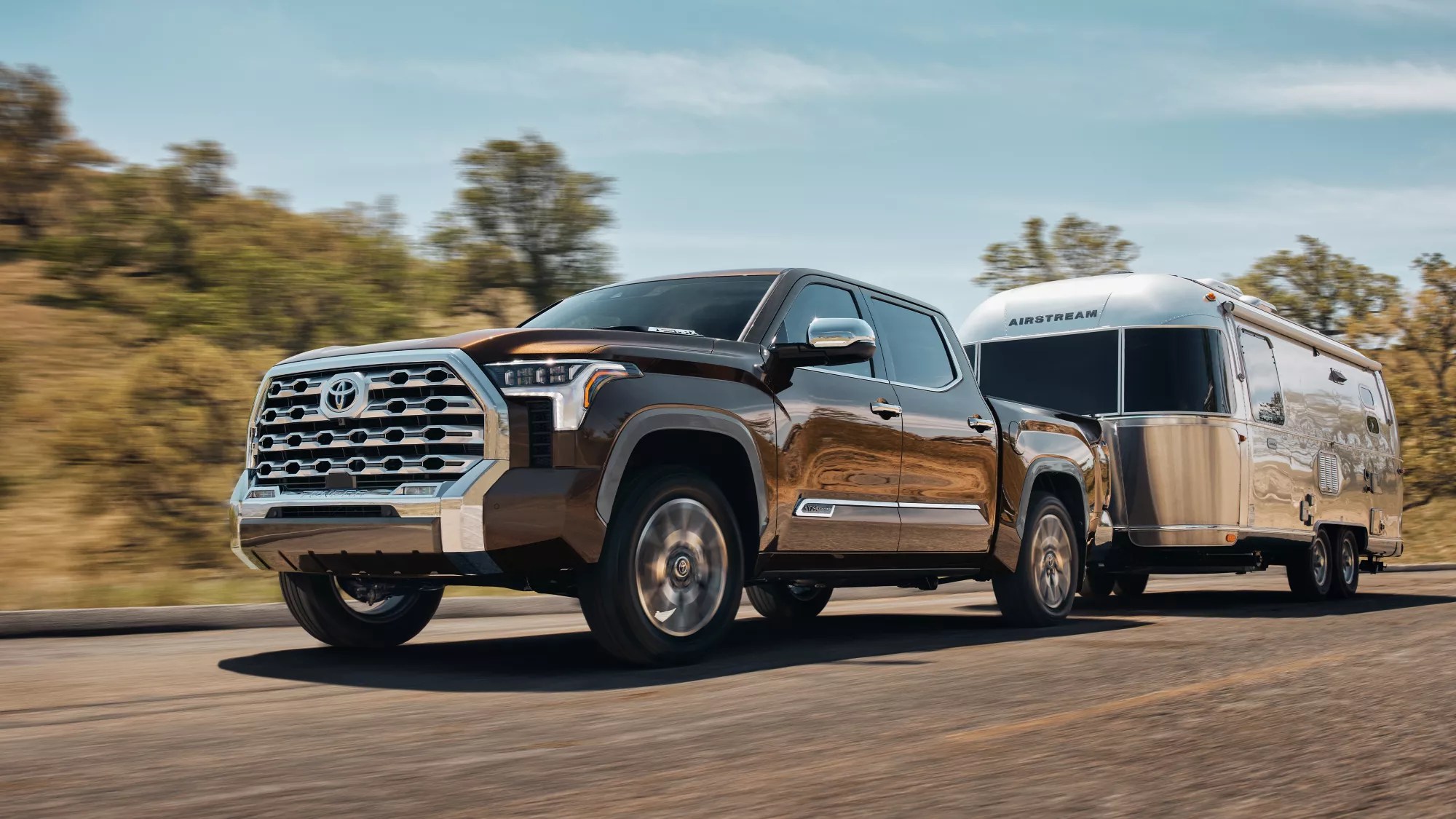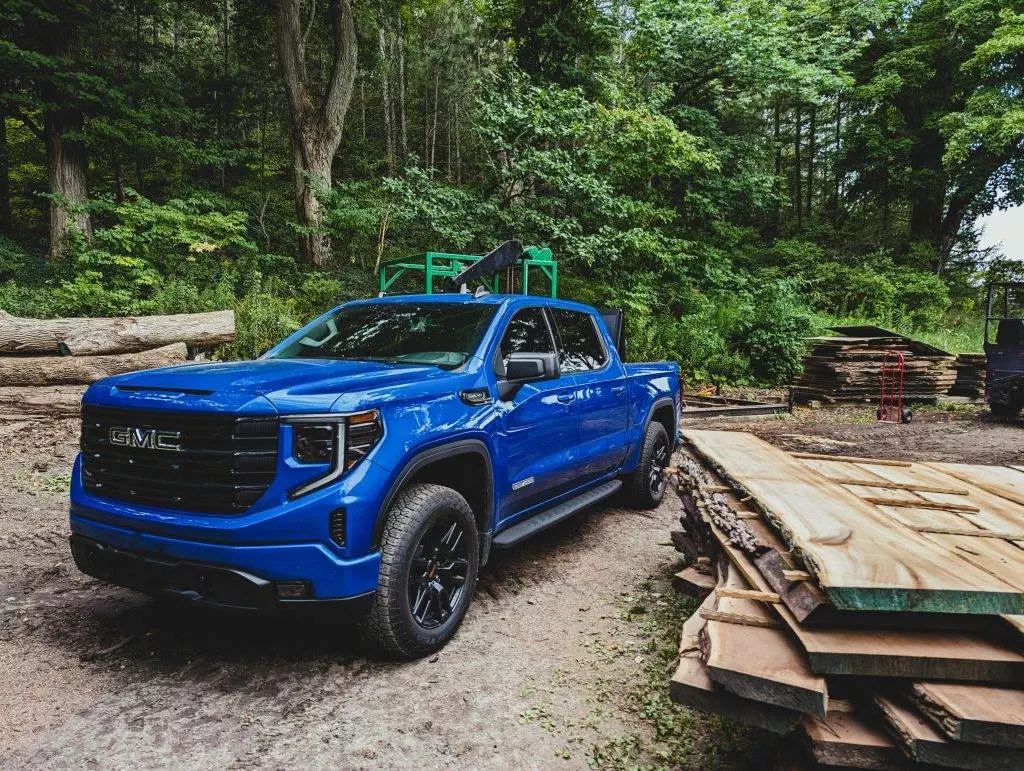Looking to buy a truck but unsure about the mileage? We all know that a vehicle’s mileage can be a significant factor in its overall condition and longevity. But is buying a truck with 100k miles really a bad idea? In this article, we’ll explore the pros and cons of purchasing a truck with this mileage and provide some helpful tips to consider before making your decision. So, let’s hit the road and discover if this milestone is a cause for concern or an opportunity for a great deal.

This image is property of www.motorbiscuit.com.
Factors to Consider When Buying a Used Truck
When it comes to buying a used truck, there are several factors that need to be carefully considered to ensure you make an informed decision. From the truck’s mileage to its maintenance history, overall condition, type, and price, each aspect plays a crucial role in determining the truck’s reliability and value. Let’s delve deeper into each of these factors to understand their significance and make the best choice.
Mileage: Just a Number?
Mileage vs. Age
While mileage is an important factor to consider, it should not be the sole determining factor when evaluating a used truck’s condition. Often, people tend to believe that lower mileage automatically equates to a better truck. However, it’s essential to take into account the truck’s age as well. A truck with low mileage but older age might have experienced more wear and tear due to time and exposure to the elements. On the other hand, a truck with higher mileage but younger age could have been well-maintained and still have a lot of life left in it.
Impact of Mileage on Truck Performance
Mileage does have an impact on a truck’s performance, but it is not necessarily a negative one. Trucks are built to last hundreds of thousands of miles when properly cared for, so a well-maintained truck with 100k miles can still be a reliable choice. However, it is crucial to understand that higher mileage does come with a higher risk of mechanical issues, as some components may reach the end of their lifespan. Regular maintenance and proper care can mitigate these risks.
Highway vs. City Miles
When considering mileage, it’s also important to take into account the type of miles a truck has accumulated. Highway miles are generally considered to be less wear-inducing compared to city miles. High-speed, long-distance driving on highways puts less strain on the engine and components, while stop-and-go traffic and short trips commonly encountered in city driving can cause more wear and tear. Understanding the type of mileage can provide insight into how the truck has been used and its potential longevity.
Effect of Proper Maintenance
Proper maintenance is a crucial factor that can positively impact a truck’s performance regardless of the mileage. A truck with a comprehensive maintenance history, including regular oil changes, fluid checks, and timely repairs, is more likely to be in better condition and have fewer mechanical issues. Regular maintenance ensures that any potential problems are detected early and addressed promptly, prolonging the truck’s lifespan and reducing the risk of unexpected breakdowns.

This image is property of i.redd.it.
Maintenance History: Key to Reliability
A truck’s maintenance history can provide valuable insights into its overall reliability. It’s important to obtain service records to see if the truck has been consistently cared for over time. This includes regular maintenance, scheduled inspections, and addressing repair needs promptly. A well-documented maintenance history indicates that the previous owner took the truck’s care seriously, increasing the chances of a reliable and well-performing vehicle.
Service Records
When buying a used truck, it’s crucial to ask for service records or maintenance logs. These records provide a detailed overview of the truck’s maintenance and repair history, including any major repairs or replacements performed. Ideally, the truck should have undergone regular servicing at recommended intervals and had any issues addressed promptly. A lack of service records can make it difficult to evaluate the truck’s history and poses a higher risk of hidden problems.
Regular Maintenance vs. Neglected Maintenance
A truck that has received regular maintenance is likely to be in better condition compared to one with a history of neglected maintenance. Regular maintenance includes oil changes, filter replacements, tire rotations, brake checks, and other routine inspections. Neglected maintenance, on the other hand, can lead to increased wear and tear, potential mechanical issues, and a shorter lifespan for the truck. When evaluating a used truck, it’s crucial to consider the extent of its past maintenance.
Wear and Tear Parts Replacement
Over time, trucks inevitably experience wear and tear on various components. When evaluating a used truck, it’s important to consider if any major parts have been replaced. Parts such as brakes, suspension components, and tires are known to wear out with regular use. If these parts have been recently replaced, it indicates that the previous owner invested in the truck’s maintenance and increases the likelihood of a reliable vehicle.
Previous Repairs
Knowing the truck’s repair history can provide insights into potential areas of concern. If the truck has had a history of major repairs such as engine or transmission replacements, it’s important to evaluate the quality of those repairs. A reputable repair shop performing the repairs and the use of genuine parts can enhance the truck’s reliability. However, excessive or recurring repairs could be indicative of underlying issues and may warrant further investigation or consideration.
Overall Condition: Beyond the Mileage
While mileage and maintenance history are important, assessing the overall condition of a used truck is equally essential. A truck’s exterior appearance, interior condition, signs of wear and tear, and mechanical soundness all contribute to determining its value and reliability.
Exterior Appearance
The truck’s exterior appearance provides a first impression and can offer insights into its care and maintenance. Look for any signs of damage, rust, or mismatched paint, as these indicate potential issues or neglect. Additionally, check for dents, scratches, and body alignment, as these may suggest past accidents or poor repair work.
Interior Condition
The interior of the truck should also be inspected for signs of wear and tear. Check the condition of the seats, dashboard, carpets, and headliner. Look for any signs of excessive wear, stains, or smells that could indicate subpar care or neglect. A well-maintained interior is indicative of an owner who took pride in their vehicle.
Signs of Wear and Tear
Inspect the truck for signs of wear and tear, beyond what is considered normal for its age and mileage. Pay attention to the condition of the tires, suspension, brakes, and other components that commonly experience wear. Excessive wear on these parts may be a sign of inadequate maintenance or potential future repair needs.
Mechanical Soundness
Finally, it’s crucial to have a mechanic inspect the truck’s mechanical systems. A professional assessment can uncover any hidden issues, potential repairs needed, or imminent mechanical failures. They can also evaluate the engine’s health, transmission, suspension, and other vital components, ensuring they are in good working order and have been properly maintained.

This image is property of i.ytimg.com.
Type of Truck: Different Needs, Different Trucks
The type of truck you choose should be based on your specific needs and usage requirements. Whether it’s for personal or commercial use, understanding the purpose of the truck, its brand and model, and its reputation can greatly influence its suitability and long-term satisfaction.
Personal vs. Commercial Use
Consider whether the truck will primarily be used for personal or commercial purposes. Personal use trucks may prioritize passenger comfort, fuel efficiency, and towing capacity. Commercial use trucks, on the other hand, may require specific features such as a larger cargo bed, durability, and towing capability. Knowing the primary use of the truck helps narrow down the options and select the best fit.
Truck’s Purpose
Think about the tasks and activities the truck will be involved in. Whether it’s for off-roading, towing trailers, hauling heavy loads, or commuting, different trucks excel in different areas. Determine the specific purpose of the truck to ensure it meets your requirements and can handle the tasks you have in mind.
Brand and Model
When it comes to trucks, certain brands and models have established reputations for reliability, performance, and longevity. Researching the reputation of different brands and models can give you a good indication of their overall quality and potential issues to look out for. It’s always wise to choose a brand that has a strong track record and offers a wide network of service centers for future maintenance needs.
Truck’s Reputation
Consider the reputation of the specific truck you are interested in. Look for reviews and feedback from current and previous owners to gauge their satisfaction and reliability. Additionally, consult trusted resources such as automotive publications and online forums to gain insights into the truck’s overall reputation, known issues, and common concerns.
Price: Balancing Mileage and Bargain
The price of a used truck is a significant factor to consider. Finding the right balance between mileage and bargain ensures you get a fair deal that aligns with the truck’s condition, potential lifespan, and future maintenance costs.
Market Value Comparison
Research the market value of the specific truck you are interested in to ensure you are paying a fair price. Factors such as mileage, age, condition, and location can influence the truck’s value. Comparing prices from different sellers and considering the truck’s overall condition and features will help you gauge its fair market value.
Expected Lifespan
Consider the expected lifespan of the truck and how it aligns with its current mileage. Trucks are built to last, but as mileage increases, so does the likelihood of mechanical issues and wear and tear. Understanding the truck’s potential lifespan will help you assess its value and make an informed decision.
Future Maintenance and Repair Costs
Higher mileage trucks may require more frequent maintenance and be susceptible to more expensive repairs. Take into account the potential future maintenance and repair costs when evaluating the price of a truck with 100k miles. A thorough inspection, consideration of the truck’s maintenance history, and professional advice can help estimate these potential costs.
Resale Value
Consider the expected resale value of the truck down the line. While it may not be an immediate concern, knowing that a truck with lower mileage and good maintenance history will have a higher resale value can influence your decision. Resale value can factor into the overall cost of ownership and potentially offset some of the initial investment.
This image is property of qph.cf2.quoracdn.net.
Pros of Buying a Truck with 100k Miles
While there are risks associated with buying a truck with 100k miles, there are also several advantages to consider.
Lower Price
One of the most significant advantages of buying a truck with 100k miles is the lower price compared to newer models. Lower mileage trucks typically come with a higher price tag, so opting for a higher mileage truck can help you save a considerable amount of money upfront.
Limited Depreciation
Trucks experience the most significant depreciation during their first few years of ownership. By purchasing a truck with 100k miles, you avoid the steepest part of the depreciation curve. This means your truck’s value is likely to remain relatively stable, reducing the potential financial loss compared to buying a brand new truck.
Potentially Good Maintenance History
A truck with 100k miles may have a good maintenance history if the previous owner(s) took diligent care of the vehicle. A thorough examination of service records, including regular maintenance and timely repairs, can provide reassurance about the truck’s condition and longevity.
Reliable Models Last Longer
Certain truck models and brands are known for their exceptional reliability and durability. If you choose a truck with a reliable track record, even one with 100k miles, it may still have many years of reliable service left. Conducting research on reliable models and seeking professional opinions can help you identify trucks that are more likely to withstand higher mileage.
Cons of Buying a Truck with 100k Miles
While there are advantages, it’s important to acknowledge and consider the possible cons of buying a truck with 100k miles.
Higher Risk of Mechanical Issues
As a truck accumulates higher mileage, the likelihood of mechanical issues increases. Components such as the engine, transmission, and suspension may be near the end of their expected lifespan and may require repairs or replacement. This can result in unexpected expenses and potentially impact the vehicle’s reliability.
Costly Repairs and Maintenance
With higher mileage comes the potential for more frequent and expensive repairs. Aging parts and wear and tear may require attention, and these costs can add up over time. It’s crucial to budget for potential repair and maintenance expenses when buying a truck with 100k miles.
Warranty Expiration
Most manufacturer warranties typically expire after a specific time or mileage limit. When buying a high mileage truck, it’s important to consider whether the original warranty has expired or will soon expire. Without a warranty, you will be responsible for any repair costs that may arise, increasing the financial risk associated with the purchase.
Limited Financing Options
Buying a truck with 100k miles may limit your financing options compared to a newer truck. Lenders may view a high mileage truck as a higher risk, leading to higher interest rates, shorter loan terms, or even difficulty obtaining financing. It’s important to explore different financing options and consider how they may affect your overall budget.

This image is property of i.ytimg.com.
Importance of Pre-Purchase Inspection
Whether buying a truck with 100k miles or any other used vehicle, a thorough pre-purchase inspection is highly recommended. Seeking a professional opinion, checking for hidden issues, assessing overall value, and having negotiation power are some of the key benefits of a pre-purchase inspection.
Seeking Professional Opinion
Having a trusted mechanic or technician thoroughly inspect the truck can provide valuable insights into its condition and any potential concerns. They have the expertise to identify hidden issues that may not be apparent to an untrained eye. Their opinion can help you make a more informed decision and ensure the truck’s reliability.
Checking for Hidden Issues
A pre-purchase inspection goes beyond evaluating the truck’s visible condition. It involves checking for hidden issues, such as engine problems, transmission issues, or structural damage. These hidden issues may not be readily apparent during a casual inspection but can significantly impact the truck’s performance and safety.
Assessing Overall Value
A professional inspection provides an unbiased assessment of the truck’s overall value. They can give you an estimate of the expected lifespan, potential repair and maintenance costs, and the truck’s current condition relative to its age and mileage. Armed with this information, you can better evaluate whether the asking price aligns with the truck’s value.
Negotiation Power
A pre-purchase inspection can also give you negotiation power. If the inspection uncovers any issues or areas of concern, you can use this information to negotiate a lower price or ask the seller to address the identified problems before finalizing the sale. Being armed with a comprehensive inspection report puts you in a stronger position to secure a fair deal.
Alternative Options: Certified Pre-Owned Trucks
If you want the peace of mind of buying a used truck but want to minimize the risks associated with high mileage, certified pre-owned (CPO) trucks offer a viable alternative. CPO trucks go through a rigorous inspection and certification process and come with additional benefits compared to regular used trucks.
Definition of Certified Pre-Owned
Certified pre-owned trucks are vehicles that meet specific manufacturer standards for quality and reliability. These trucks undergo a comprehensive inspection, covering both mechanical and cosmetic components. Once certified, they usually come with extended warranties and additional benefits.
Benefits of CPO Trucks
One of the primary benefits of buying a CPO truck is the added assurance of quality and reliability. These trucks undergo thorough inspections conducted by factory-trained technicians to ensure they meet a set of stringent criteria. Additionally, CPO trucks often come with extended warranties, roadside assistance, and other perks that enhance the ownership experience.
Higher Price Tag vs. Lower Risks
CPO trucks typically come with a higher price tag compared to regular used trucks. This is due to the added benefits, extended warranties, and the meticulous inspection process they go through. However, the higher price is often justified by the lower risks associated with buying a truck with a certified pre-owned designation.
Manufacturer’s Warranty and Inspection
One of the key advantages of buying a CPO truck is the manufacturer-backed warranty that provides coverage beyond the original warranty period. This warranty can offer peace of mind and protection against unexpected repair costs. Additionally, the thorough inspection conducted by factory-trained technicians ensures that the truck meets the manufacturer’s standards for quality and reliability.
In conclusion, buying a truck with 100k miles can be a viable option, provided you carefully consider various factors. Mileage, maintenance history, overall condition, type of truck, and price all play crucial roles in determining the truck’s reliability, value, and suitability for your needs. By thoroughly evaluating these factors and conducting a comprehensive inspection, you can make an informed decision and find a used truck that meets your requirements while minimizing the associated risks.


